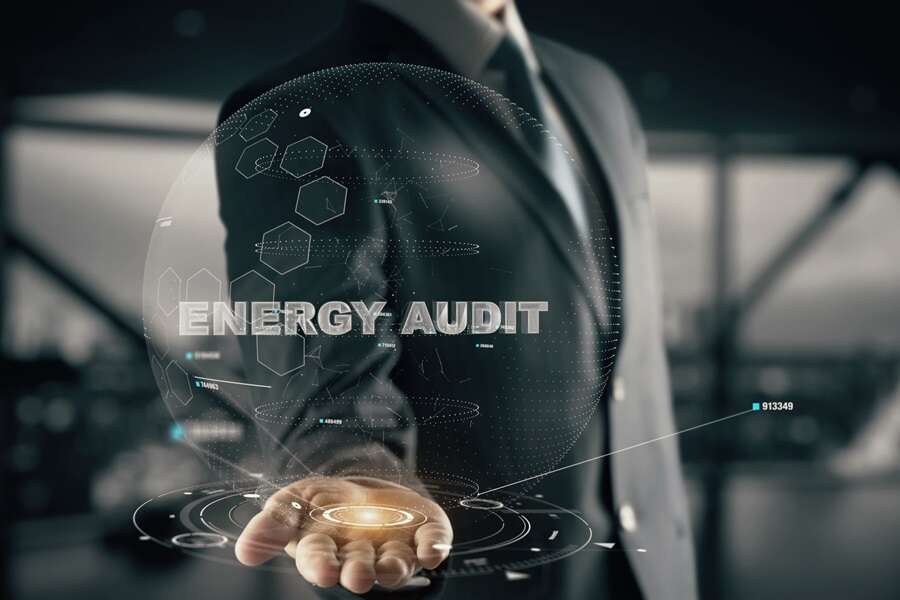For decades, home energy audits have played a critical role in the success of utility-funded energy efficiency programs because they provide personalized insights to homeowners.
I remember buying my first home—a complete and total fixer-upper on a beautiful piece of land in the Colorado mountains—and although my husband and I were both reasonably handy, we had no idea how to handle the strange combo of leaky log walls, blazing sun through the living room windows, and DIY solar panels on the roof that stored heat for our water heater in a room of gravel under our daughter’s nursery (I’m not kidding). An energy auditor assessed our (very) unique situation and helped us prioritize improvements that made our new old home more comfortable and affordable.
Today, both the Home Energy Rebate (HER) initiative and utility-funded programs still rely on energy audits, but requirements driven by legislation like the Inflation Reduction Act (IRA) have advanced, and energy audits have had to evolve along with them. Today, innovative technology and a data-driven approach are essential components to an energy audit.
HER programs, for example, require BPI-2400-certified energy modeling, which relies on comprehensive energy audits and modeling software that calibrates a home’s historic energy consumption. Because they’re considered more accurate than standard energy audits, this can translate into more accurate savings predictions and consequently more cash in residential customers’ pockets. In addition, as many utilities evolve their DSM programs to include whole-home measures (e.g., energy efficiency, demand response, electrification), electrification readiness audits become an important component of the overall home assessment.
Understanding BPI-2400 Certification and Benefits
The Building Performance Institute (BPI) is a recognized authority in the field of building energy efficiency. The BPI-2400 standard specifically pertains to energy auditing tools that are rigorously tested and certified for accuracy, reliability, and consistency in assessing home energy performance. Auditing tools certified under BPI-2400 must meet stringent criteria, ensuring they provide high-quality data and actionable insights.
Accuracy and Reliability. BPI-2400-certified energy auditing tools are designed to deliver highly accurate and reliable assessments of home energy performance. This precision is crucial for utilities and state energy offices aiming to develop effective energy efficiency programs. Accurate data ensures the recommendations made for energy improvements are based on solid evidence, leading to better outcomes for both utilities and their customers.
Standardization and Consistency. It’s important to leverage certified tools, ensuring that energy audits are conducted according to standardized procedures. This consistency is essential for statewide programs and utilities managing large-scale programs, as it allows for comparable data across different homes and projects. Standardization also simplifies the process of aggregating and analyzing data, enabling more effective program management and reporting.
Enhanced Credibility. Adopting a BPI-2400-compliant auditing tool enhances the credibility of a state energy office or utility’s energy efficiency programs. Customers and stakeholders can trust that the assessments and recommendations provided are based on industry best practices. This trust can lead to higher participation rates in energy efficiency programs and greater overall customer satisfaction.
Historically, BPI-2400 compliance has not been a requirement for utility-based energy audits, nor has home certification. It’s a whole new frontier for many utilities and implementers, which may require third-party auditing assistance. Franklin Energy introduced the first BPI-2400-compliant energy auditing tool to be approved by the US DOE—Snugg Pro—in July. Snugg Pro integrates with home certification and utility data access providers. Snugg Pro is also the auditing tool most preferred by contractors due to its ease of use.
CASE STUDY
Innovative Energy Audits in Action: PSE’s Go Electric Program
Puget Sound Energy (PSE) works with Franklin Energy to give free home-electrification audits to all its single-family natural gas customers. The audits include an energy-saving home improvement plan with guidance on how to go electric and a $50 gift card for every participant, along with up to $50 for referring other homeowners.
Ready to learn more about Snugg Pro, our next-generation energy auditing tool?










